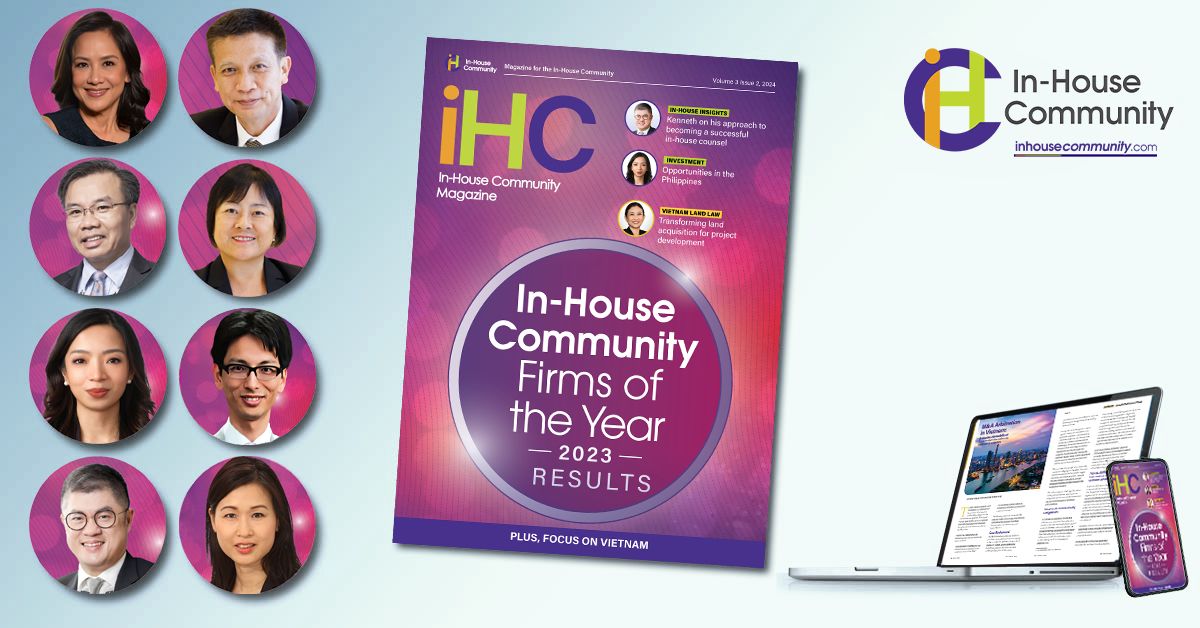To introduce recent developments in arbitration in Asia, the Singapore International Arbitration Centre discusses the details of two key features of the SIAC Rules.
In July 2010, the new SIAC rules were promulgated, which provided for two new and innovative provisions for parties: the emergency arbitrator and the expedited procedure. Both procedures have proven remarkably successful in providing parties with alternative means to obtain immediate relief and reduce time and cost in the resolution of their dispute.
Emergency arbitrator
The emergency arbitrator provisions were introduced in the SIAC rules in order to address situations in which a party is in need of emergency interim relief before a tribunal is constituted. The SIAC was the first international arbitral institution based in Asia to introduce emergency arbitrator provisions in its arbitration rules.
Since the introduction of the emergency arbitrator provisions and until December 31, 2014, a record number of 42 applications have been filed with the SIAC. Of these, 24 applications were granted by the emergency arbitrator (four by consent and four in part) and 14 were rejected. No orders were made in four applications as the applications were withdrawn.
In 2014 alone, of the 197 cases administered by the SIAC, 12 requests for the appointment of an emergency arbitrator were received. The applications were received predominantly from Singaporean parties (six applications) and Indian parties (three applications). All applications were accepted by the President of the Court of Arbitration and emergency arbitrators were appointed in all 12 applications.
Cases in which applications for emergency relief were filed arose from a broad range of sectors, including shipping, distribution agreements, corporate joint ventures, international trade, general commercial agreements and construction disputes.
The types of relief sought included preservation orders, freezing orders, orders permitting access to inspect a property, Mareva injunctions and general injunctive relief.
A counter-application filed by one of the parties to a SIAC arbitration presented novel questions to the Court of Arbitration. In one case, the SIAC received an application for the appointment of an emergency arbitrator from the claimant. The president accepted the application and appointed an emergency arbitrator in respect of the claimant’s application. The day after the emergency arbitrator’s appointment, the respondent also filed an application for the appointment of an emergency arbitrator and alleged that they too are entitled to emergency relief prior to the constitution of the tribunal. The president decided to accept the counter-application and decided that the same emergency arbitrator should be appointed in respect of the counter-application. The emergency arbitrator thereafter heard the applications together, but issued separate interim awards in respect of each.
On average, an emergency arbitrator takes about eight to 10 days to render its award/order after having heard the parties. However, it is not uncommon to see an emergency award/order passed in as little as two days in certain cases.
Orders and awards issued by emergency arbitrators have been voluntarily complied with in most instances. They have also been effectively enforced as, for example, in HSBC PI Holdings (Mauritius) Ltd v Avitel Post Studioz Ltd and others (2014), where the Bombay High Court, in the exercise of its jurisdiction to grant interim measures of protection, directed relief in terms of the emergency arbitrator awards.
Awards issued by emergency arbitrators are enforceable under Singapore law. Singapore’s international Arbitration Act was amended in 2012 to provide for the enforceability of the awards and orders issued by emergency arbitrators in Singapore-seated arbitrations and also arbitrations seated outside Singapore. This made Singapore the first jurisdiction globally to adopt legislation for the enforceability of such awards and orders in Singapore.
 Expedited procedure The second innovative element introduced in the 2010 SIAC rules was the expedited procedure. The expedited procedure was a time and cost-saving option available in appropriate cases to parties who agree to refer their disputes to arbitration under the SIAC rules.Under the SIAC rules, a party may make an application for the expedited procedure prior to the full constitution of the tribunal where the amount in dispute does not exceed SG$5,000,000, where the parties so agree or in cases of exceptional urgency. The President of the Court of Arbitration thereafter determines, after considering the views of the parties, whether to accept the application. If the president decides to accept the application, the case shall be referred to a sole arbitrator unless the president determines otherwise, and the award shall be made within six months of the constitution of the tribunal, unless the registrar extends the time in exceptional circumstances. Since its introduction in 2010, the expedited procedure has proved to be quite popular with parties. As of December 31, 2014, the SIAC has received a total of 159 applications, of which 107 requests were granted. In 2014, the SIAC received 44 requests and accepted 23. In AQZ v. ARA [2015] SGHC 49, the Singapore High Court recently upheld an award issued under the expedited procedure. In that case, the parties agreed to arbitration “in accordance with the [SIAC rules] by three arbitrators”. The defendant applied for the arbitration to be conducted in accordance with the expedited procedure. After considering the views of the parties, the president accepted the application and appointed a sole arbitrator to decide the dispute. After an award was issued against it, the plaintiff filed an application to set aside the award. One of the grounds that it relied upon was that the composition of the arbitral tribunal and/or the arbitral procedure was not in accordance with the agreement of the parties. The plaintiff argued that the arbitration should not have been conducted before a sole arbitrator, as the parties had expressly agreed to arbitration before three arbitrators and their contract was entered into before July 1, 2010, which is when the rule on the expedited procedure came into force. In dismissing the application to set aside the award, the High Court found that the SIAC Rules 2010 applied to the proceedings on the basis of the presumption that reference to rules in an arbitration clause refers to those rules in force at the date of the commencement of the arbitration, provided that they contain mainly procedural provisions. Here, the arbitration was commenced when the SIAC Rules 2010 were in force, and the plaintiff has not contended that the SIAC Rules 2010 contained mainly substantive provisions. The High Court ruled further that the expedited procedure in the SIAC Rules 2010 can override the parties’ agreement for arbitration before three arbitrators even if the contract was entered into before July 1, 2010. The High Court stated that “[a] commercially sensible approach to interpreting the parties’ arbitration agreement would be to recognise that the SIAC President [has] the discretion to appoint a sole arbitrator. Otherwise, regardless of the complexity of the dispute or the quantum involved, a sole arbitrator can never be appointed to hear the dispute notwithstanding the incorporation of the SIAC Rules 2010 which provide for the tribunal to be constituted by a sole arbitration when the expedited procedure is invoked.” Undoubtedly, the availability of emergency relief and the expedited procedure is a welcome and effective alternative to parties who are seeking interim relief, who may be hesitant to navigate the uncertain or unknown terrain of local courts of other jurisdictions, as well as those looking to cut costs in terms of time and money. Instead, the SIAC’s emergency arbitrator and expedited procedure provisions provide parties with a swift and efficient means to obtain immediate and enforceable relief within the neutral, confidential, and cost-effective environment of international arbitration. |


















